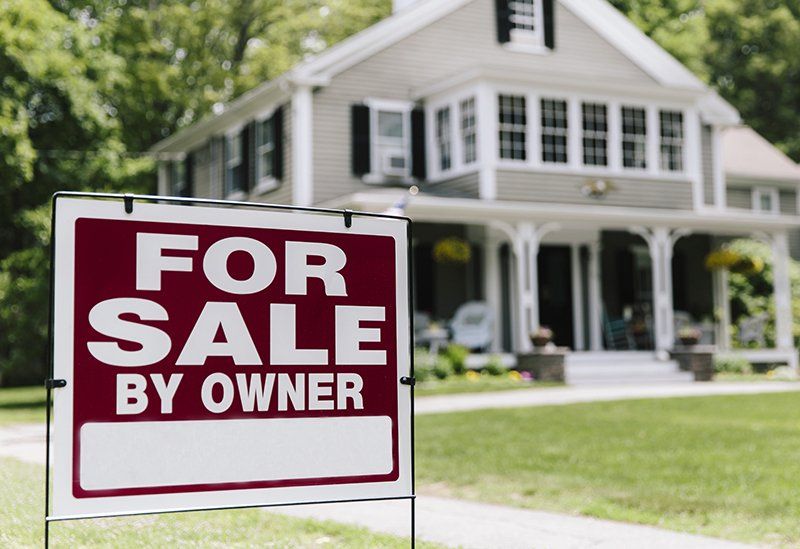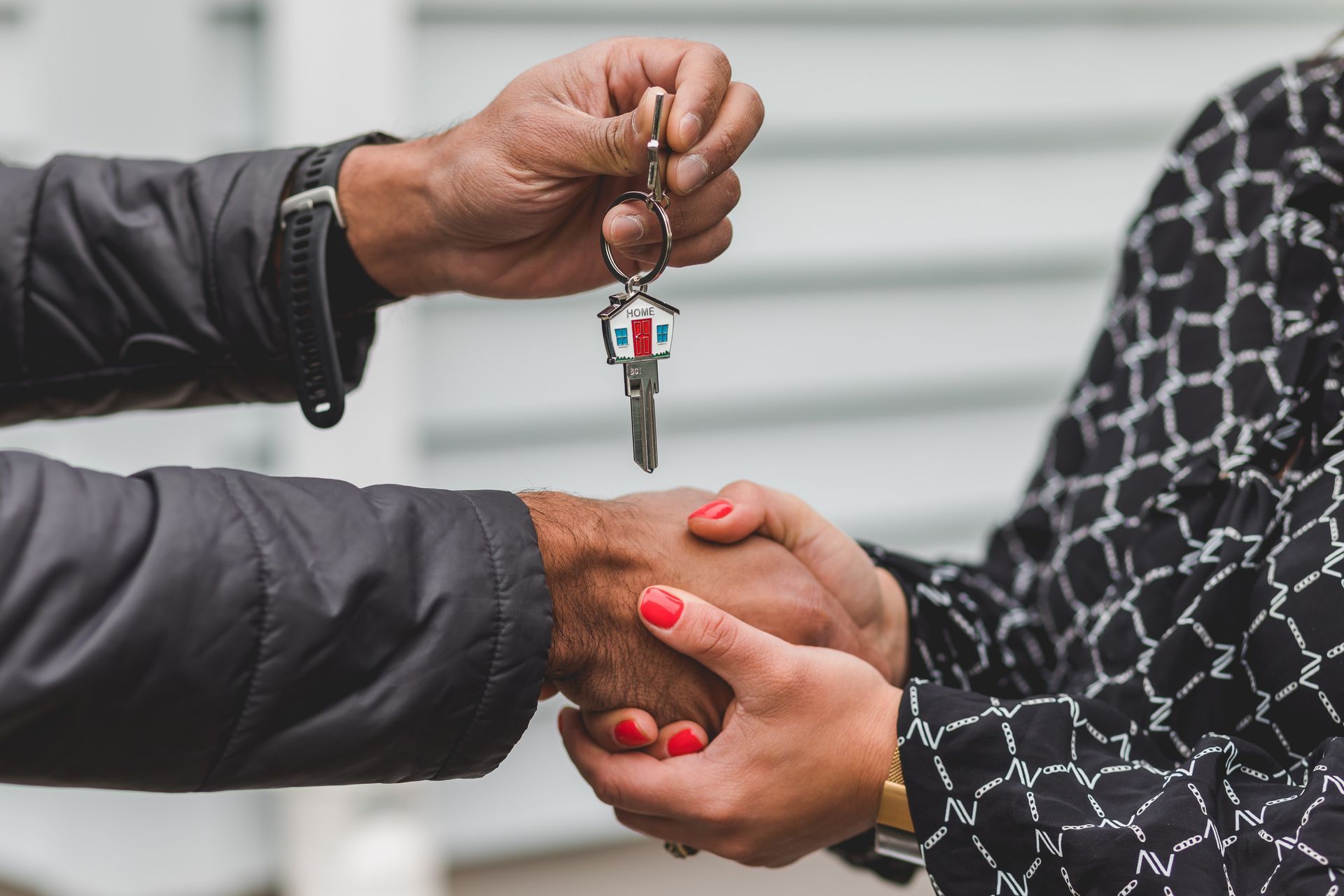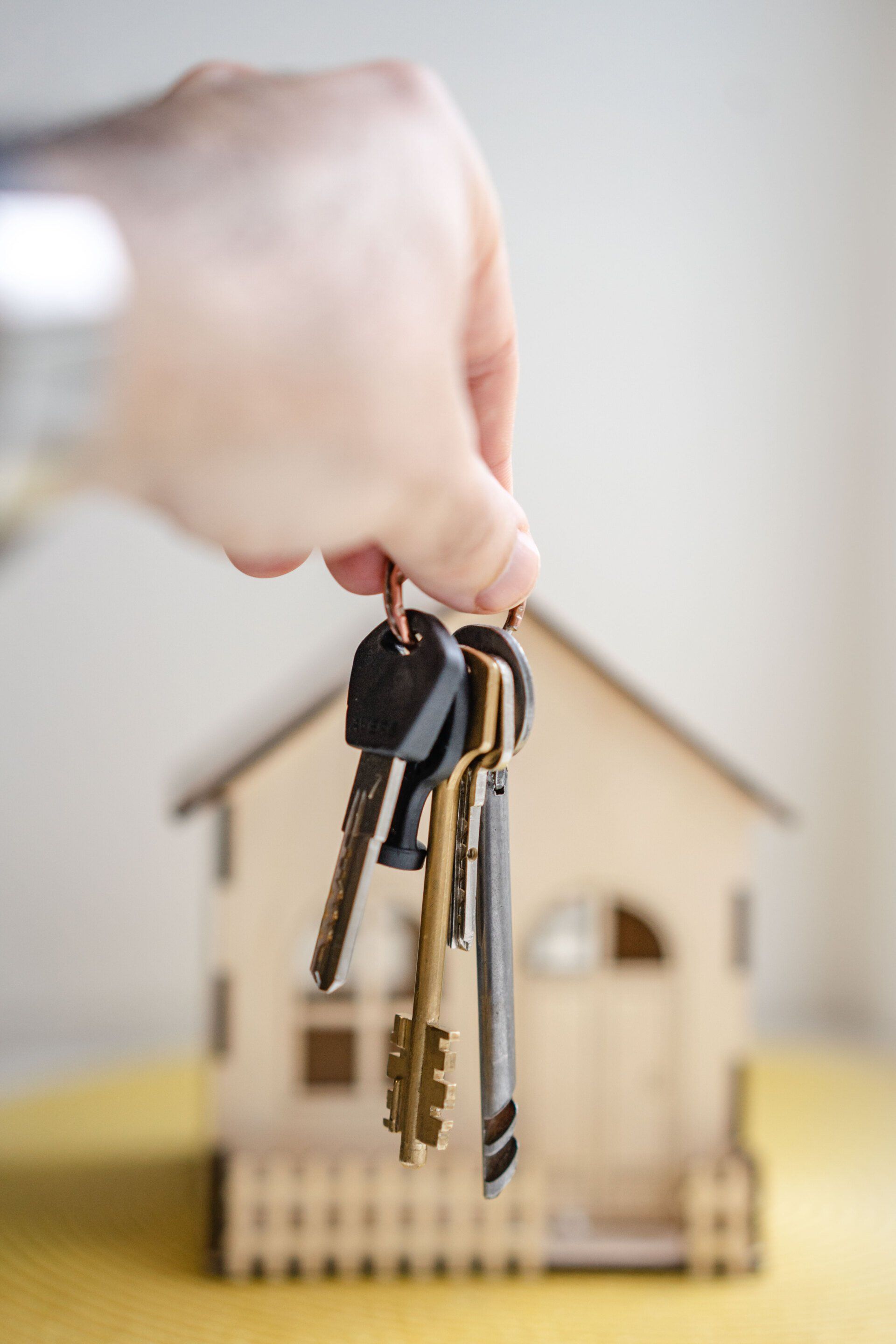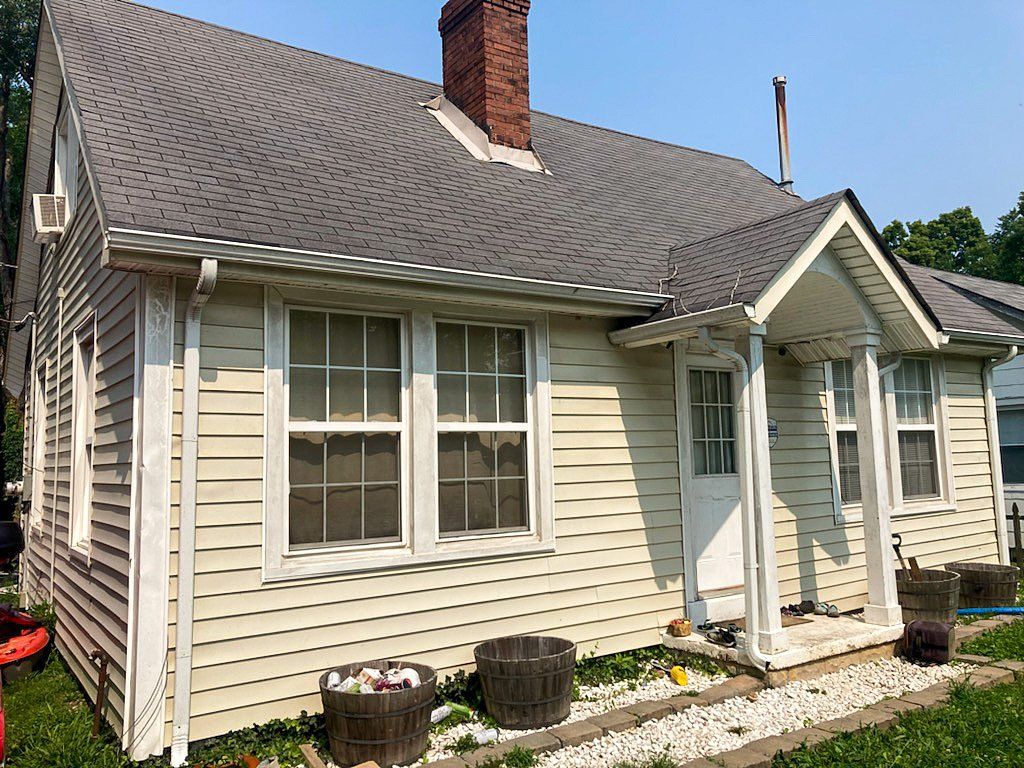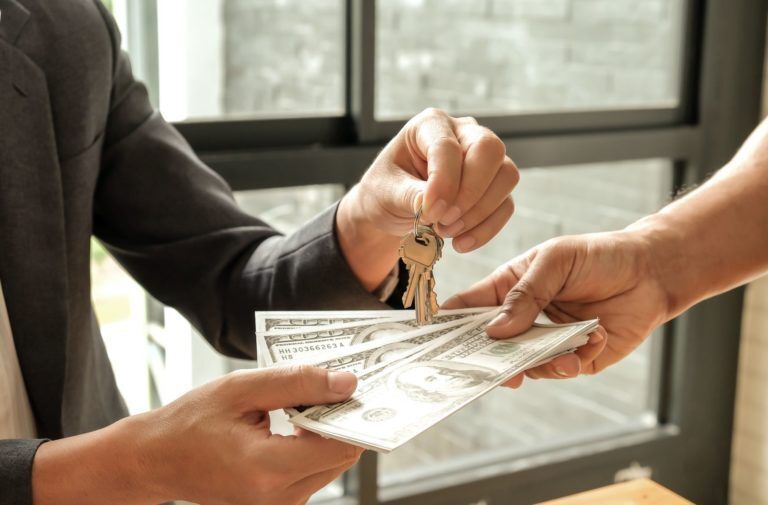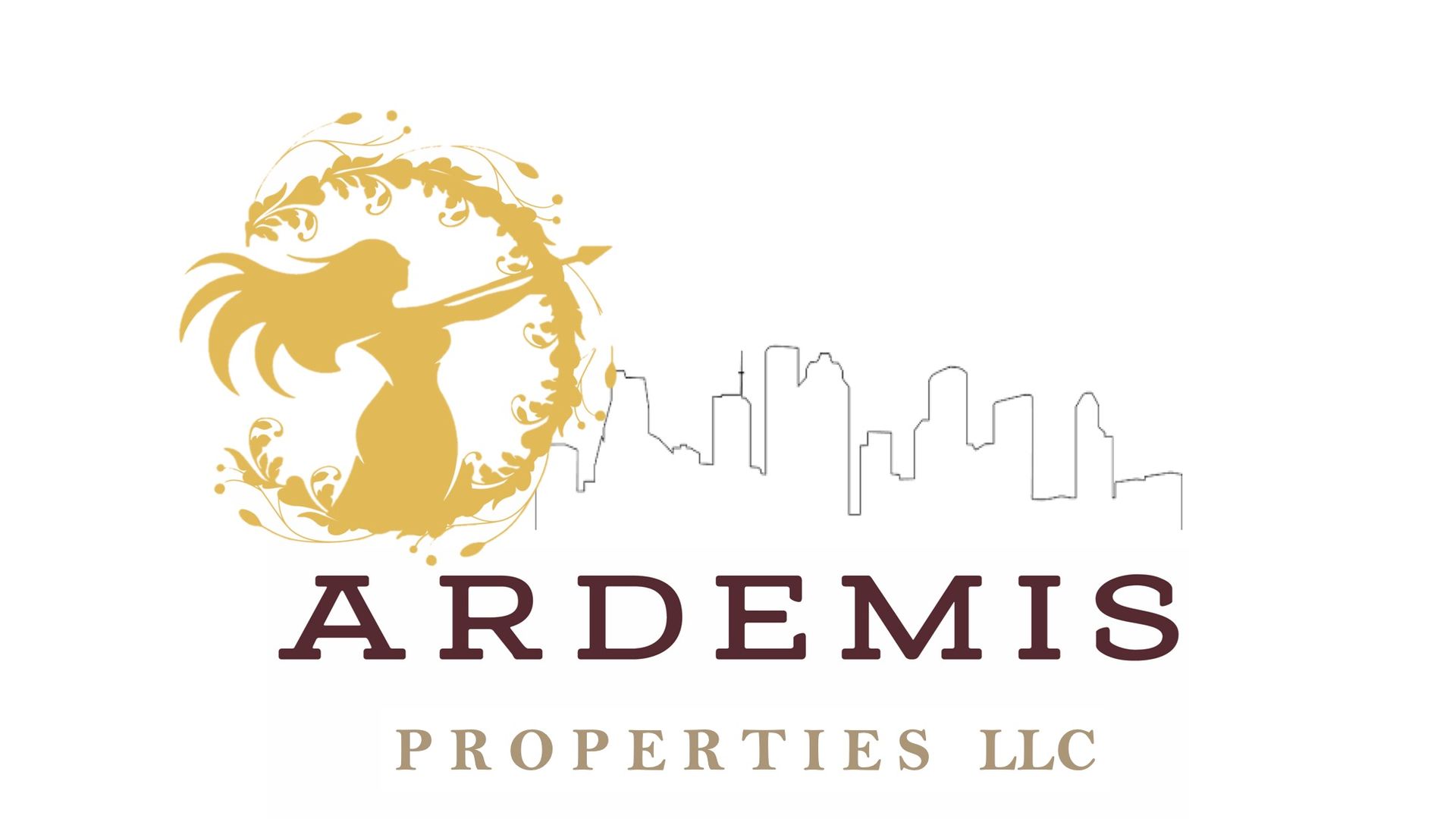Closing Costs in Georgia
If you want to sell your house, you may be wondering how much are closing costs in Georgia. In the state of Georgia, the average home price is $256,772, with buyers paying an average of 1.41% in closing costs. This means the average closing cost in Georgia in 2020 is $3,610.38 with taxes and $2,700.63 without taxes. Closing costs in Georgia are a sum of fees that have to be paid to different stakeholders.
Closing costs are essential for finalizing the real estate deal and transferring house ownership. These settlement costs are paid in addition to the net property amount. Below you will understand
who pays closing costs in Georgia, what's included in the closing costs, and so much more.
What's Included in Georgia Closing Costs?
While average closing costs in Georgia are set to the buyer or seller, others are negotiable. As a result, it's critical to be familiar with them in case your buyer requires you to cover a percentage of their closing fees. The following are some of the most typical closing costs in Georgia, along with an estimate of how much they will cost.
Loan Origination Fee
Obtaining a mortgage is not free. Loan origination fees will be the first charge added to your closing costs. Your mortgage lender must charge you for setting up a mortgage account. This will cover preparing your home loan application, establishing how much you'll qualify for, providing preapproval letters for your house hunt, and processing your money at closing. According to real estate professionals, home purchasers should budget for loan origination costs of 0.5 percent to 1 percent of the loan amount.
Credit report Fee
Before your lender approves your home loan application, you must pass a rigorous credit check to ensure that you are a responsible borrower. Your lender will request your credit report from the major credit agencies to thoroughly examine how you've managed your debts over the last decade or so, which will cost you money. In Georgia, each individual on the loan application might be required to pay $200.
Attorney Fees
Did you know that you must hire a real estate attorney when you buy a house in Georgia? Georgia requires real estate closing attorneys to be engaged in everything, from working with your mortgage broker on your loan to preparing your purchase agreement, completing the contract, serving as an escrow agent, and certifying deeds and other legal papers. The closing attorney in this scenario represents the buyer's lender; their ultimate responsibility is to ensure that the closure is conducted properly, on time, and equitably for all parties involved. They will guarantee that all parties understand their rights and duties and oversee that all loan documents are correctly signed.
The buyer and seller can retain their own legal counsel to help with any paperwork or contracts. While title companies play an important part in the closing process of other jurisdictions, Georgia relies entirely on real estate attorneys to do the hard job. The closing attorney will request a comprehensive examination of the home's title history to verify the seller's authority to transfer ownership. The last thing you want is to spend your entire life savings on a property only to find yourself in a court struggle over ownership.
The title search entails going through historical records such as deeds, court records, property and name indexes, and other local data. This ensures that the land you're buying isn't tied up in ownership disputes, unsettled taxes, judgments, or litigation. You must pay for this step, whether you're purchasing a new house or an old one. Following the title search, the real estate attorney will assist you in obtaining the required title insurance for both you and your lender.
Title insurance protects both parties if something goes wrong and claims are made against the property. This might include a former owner failing to disclose their marital status, resulting in a legal spouse claiming the residence, or other occurrences such as fraud, forgery, or even administrative mistakes. Again, since there's always the question of who gets the house in a divorce in Georgia, such cases may arise during the sale process, which is why title insurance is a necessity. Title insurance in Georgia is based on the purchase price of a house.
Title insurance rates for properties worth up to $100,000 are $4.20 per $1,000. It drops to $3.65 for residences worth $100,000 to $500,000. Even though the state's Office of the Commissioner of Insurance says title insurance fees can be paid by either the buyer or the seller, they are most often paid by the buyer. The cost of hiring a real estate attorney in Georgia varies based on where you live and the complexity of your house transaction.
If you're looking for a lawyer in Atlanta or Savannah, expect to pay more than in little places like Helen or Canton. Some real estate attorneys charge a set fee for the whole property-buying process, while others charge by the hour. While legal expenses might be costly, they are well worth it since your property is likely to be the largest purchase you'll make in your lifetime; therefore, you'll want to have complete paperwork.
Real Estate Transfer Tax
A home seller in Georgia is obligated to pay a real estate transfer tax when they transfer the property to the buyer. This expense, however, is frequently agreed to be covered by the buyer. The transfer tax is one dollar for every $1,000 in property value. For example, in a city where residences are priced on average at $508,000, real estate transfer taxes would cost $508.
Property Taxes
Georgia's typical yearly property tax payment is $1,771, which is roughly $800 less than the national average. Expect to pay for this charge at closing and then yearly. It's worth remembering that property tax due dates vary. When you relocate across the state, you'll need to pay attention to payment dates in your new county.
How to Lower Closing Costs in Georgia
Get Your Finances in Shape
The interest rate you obtain is also important in the home-buying process. If you apply for a house loan with a good credit score, you may be able to get a reduced interest rate, saving you thousands of dollars over the life of your mortgage. With this in mind, it's a good idea to have your financial situation in order before visiting your mortgage broker. Pay all your debts to keep your debt-to-income ratio low.
Don't skip any payments on existing loans, and don't apply for new credit until you talk to lenders. Also, save as much as you can for your down payment. The closer you go to the 20% down payment requirement, the less you'll have to pay in Private Mortgage Insurance. Even if you only have a 15% down payment, after you reach 20% equity as a homeowner, you are no longer required to pay PMI.
Shop Around
Shop around for the greatest mortgage loan interest rate and any other service providers you'll require during the home-buying process. Examine customer reviews, referrals from friends and family, and the accreditations of service providers. You can then ask for quotes from different service providers to find a suitable deal.
Seller Discounts
When negotiating a house sale, there is always room to ask for a certain price, especially if you are in a buyer's market where the seller is eager to close the deal. Price negotiations and compromises on who pays closing costs in Georgia are standard parts of the home-buying process. For example, if you offer to submit a full-price offer on their home, you can ask the seller to cover part or all of your closing fees.
Negotiate Fees
Your closing attorney will give you a Closing Disclosure document detailing the numerous services and costs you'll be required to pay on the closing day. While the running total may scare you, read through the list to ensure you understand and consent to the charges. The form should be updated by the deadline. Look for inconsistencies, cost increases, or additional unexpected charges.
Don't be scared to question or challenge any discrepancies. You may be able to negotiate the elimination of some of these costs, particularly if you are a long-term client with various loan products that you have handled properly. The most apparent costs you may strive to avoid are those referred to as additional fees, such as loan processing costs and broker rebates.
Adding Closing Costs to Your Home Financing
Homebuyers who cannot pay their closing costs in cash may choose to roll this charge into their mortgage. Instead of paying for their closing expenses on the day of closing, the sum is applied to the monthly mortgage payments. While this is a simple option to avoid paying closing fees upfront, you will be paying interest on your closing costs during the life of the loan. This option may not be available to all homebuyers.
You should check with your lender to determine if this arrangement is possible.
No Closing Cost Mortgage
A "no-closing-cost" mortgage is another option in which your lender agrees to pay for some or all of your closing fees. As a result, your mortgage interest rate rises. Make some calculations before deciding this is the greatest option for your bottom line. Because of the increase in your interest rate, this might cost you more money in the long run.
Get Closing Cost Assistance
If you're buying a home, you should contact the Georgia Department of Community Affairs, which administers several statewide programs that arrange for inexpensive mortgages and offer down payment and closing cost assistance options.
Don't Pay the Real Estate Agent Commission
As the seller, you will pay for all the commission costs. The standard commission rate is 6% of the home's sale price in Georgia. You should explore other options if those fees are too high for you. For instance, you can opt to sell your house in Newnan to a cash house buyer.
These buyers usually pay closing costs in Georgia and even the seller's fees. Here is how you can find a reliable cash home buyer to sell your house to.
Ask If the Cash Buyer Accepts Your Home As-Is
A cash house buyer who demands you to clean up and restore your home may as well be a real estate agent. Some house buyers want homeowners to clean up, patch up, and fix up their homes after making a cash offer, and they're not going to adjust their offer once your property is cleaner and more valued. These businesses want to make more money while doing less labor, which is unfair to homeowners in tough life situations, and they are trying to complete the sale quickly. When making a fast property sale, you shouldn't have to tidy things up, make costly repairs, or cater to the wishes of a house buyer.
You will get a fair cash offer immediately.
What Process Does the Cash House Buyer Use?
If your cash house buyer demands enormous paperwork, home modifications, and other issues to work on, you will not have a home sale as quickly as you would like. Home buyers who want you to sign multiple documents with complex legal jargon might be a fraud. A quick home sale should not be complicated at all. A quick house sale necessitates a straightforward procedure, which entails a quick walkthrough of your complete property, a reasonable cash offer, and a smooth closing process that takes a few days.
The finest cash house buyers don't have time to complicate the process, so they keep it as easy as possible for the good of their business and homes in their town.
The Experience of the Cash Home Buyer
It is crucial to ensure you're working with an experienced cash home buyer. Anyone can buy a property with cash, but not everyone understands the legal protocols and actions to follow to ensure a successful home sale and a stress-free client experience. The greatest cash house buyers understand every aspect and complication of homeowners, housing markets, home titles, finances, and everything else involved in a cash home sale. This means you will be completely delighted with the cash offer and the overall experience you will receive.
Does the Buyer Have a Reasonable Price and Closing Date?
The entire notion of selling your property fast through a home buying firm is to receive a fair price and a quick closing date, which is what distinguishes cash home buyers from typical real estate purchasers. If your cash house buyer fails to meet one or both of these requirements, it's time to find a new one. Homeowners who need to sell their houses quickly are frequently in terrible financial or personal situations, which means that some home-purchasing companies may make unreasonably low offers for valued homes to take advantage of such difficult situations. If a homeowner believes that selling their property for a low price is the best and only alternative, they will fall into the trap and miss out on the money they deserve.
The top cash house buyers are in the business of assisting individuals in need, regardless of the circumstances. They provide reasonable cash prices tailored to the homeowner's individual situation but also make sense compared to current real estate market values. They provide a rapid and easy closing procedure, allowing both parties to move forward easily. They are equally concerned with the homeowners in their neighborhood as they are with their investments.
Identify Any Hidden Fees
In a normal cash house sale, the homeowner receives a cash settlement while the cash buyers manage the closing costs and up-front fees. However, this is not always the case. Some cash home buyers will charge the homeowner processing fees, administrative fees, and other expenses. Worst of all, many homeowners are unaware of these expenses until they accept their cash offer.
You should not have to cope with hidden expenses as a homeowner, especially during difficult circumstances. You should work with cash house buyers who are straightforward and clear about the expenses of their services.
Is the Cash Home Buyer Honest?
When it comes to cash house sales, honesty is very important. If your cash house purchasing team can't be honest with you, or if they delay giving you vital information and updates, it's obvious that they have something to conceal. So that you may have the simplest house sale possible, your cash home purchasers should be upfront, honest, and trustworthy.
Endnote
If you're buying a home in Georgia, closing costs may include lender origination fees, title insurance, and transfer taxes. Other closing costs are highlighted above. These costs often add up to about 2-5% of the home's purchase price. To ensure you understand how much closing costs you will pay, you should first understand how much closing costs are in Georgia and then understand what's included in Georgia's closing costs. You can then educate yourself on how to lower the closing costs to spend less.
For instance, selling your home to a cash buyer is a great alternative to achieve this.
Give us a call anytime at 832-506-8040 or fill out this quick form to get started today!
Get A Fair Cash Offer On Your House
